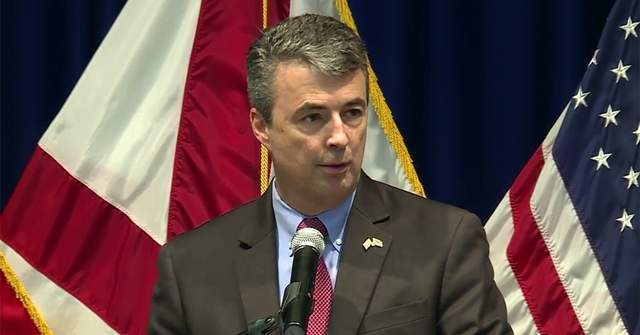MONTGOMERY, Ala.—Attorney General Steve Marshall led a 21-state amicus brief filed Tuesday in support of South Carolina’s one-year-old Fetal Heartbeat and Protection from Abortion Act, which had been blocked by federal district and appeals courts.
Attorney General Marshall filed the amicus brief in Planned Parenthood South Atlantic v. Wilson before the U.S. Court of Appeals for the Fourth Circuit on Tuesday. The South Carolina abortion law, which was enacted on February 18, 2021, was enjoined by a federal district judge on March 19, 2021, and the injunction was upheld by the U.S. Court of Appeals for the Fourth Circuit on February 22, 2022.
Under the law, abortions are generally prohibited once a fetal heartbeat is detected. The law also requires abortion providers to give the mother an opportunity to have an ultrasound and view the sonogram, hear the fetal heartbeat and receive other information about her unborn child.
“States have an unquestioned interest in making information about a child available to a mother who is considering abortion. That is why Planned Parenthood and the other plaintiffs challenged only the law’s regulation of abortion after a fetal heartbeat is detected,” said Attorney General Marshall. “However, the federal appeals court ruling affirmed the errors of the lower court by enjoining the law in its entirety—blocking the law’s many disclosure and education requirements which are legal and enforced in many other states, including Alabama.
“At least 24 states currently require an abortion provider to offer to display the image from an ultrasound so the pregnant mother can view it. Yet the courts enjoined South Carolina’s ultrasound disclosure law. Same for South Carolina’s requirement that abortion providers make the fetal heartbeat audible for the pregnant mother if she would like to hear it—a law that at least 16 other states have also enacted. And same for South Carolina’s requirement that an ultrasound be performed before an abortion is conducted—a requirement shared by at least 12 other states.
He concluded, “The courts tread on South Carolina’s sovereign ability to decide for itself the purposes of its legislation, completely ignoring the State General Assembly’s clear intent, written in the text of the law, that if any part of the law were held unconstitutional then the remainder would not be invalidated.”
Joining Attorney General Marshall in signing the amicus brief (https://www.alabamaag.gov/Documents/news/SC%20Abortion%20Law%20Multistate%20Amici%20Brief.pdf) are attorneys general from Alaska, Arizona, Arkansas, Georgia, Idaho, Indiana, Kansas, Kentucky, Louisiana, Mississippi, Missouri, Montana, Nebraska, North Dakota, Ohio, Oklahoma, Tennessee, Texas, Utah and West Virginia.




















